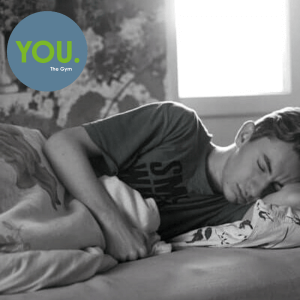
What happens in sleep deprivation?
Sleep makes you feel better, but the importance of sleep goes far beyond making you feel better or look better the next morning. Adequate sleep is an essential part of a healthy lifestyle, and can contribute positively to your heart, body weight, mind, mood and more. And while there is no “magic number,” the consensus seems to be that adults should enjoy at least 7 to 8 hours of sleep per night. You might wonder why we should sleep. There is no real consensus on the answer yet, but the explanation should probably be found in a combination of the reasons below.
Why sufficient sleep is important:
- Conservation of energy – sleeping takes less energy than being awake.
- Reorganization of our thoughts, memories and the information we have gathered during the day.
- Physical recovery – during our sleep, our body recovers.
- Psychological recovery – our brains recover during our sleep.
So in summary, sleep probably has primarily a recovery function, helping to recharge the battery. But what happens when we do not sleep long enough and thus may not have fully recovered? Some people think that missing this period of recovery directly creates a threat to health, or that chronic sleep deprivation shortens lifespan or increases morbidity. Yet there is no immediate need to worry if you lie awake a few nights, toss and turn half the night, or sleep poorly for a while. Direct adverse health effects from less sleep are likely to be minimal. Reports of healthy people needing only a little or no sleep seem to support this view. On the other hand, we cannot say that sleep deprivation, especially if it is prolonged, has no consequence. Apart from the possible tired feeling that can creep up on you if you don’t sleep enough for a while, there are a number of concrete effects.
These are the effects of sleep deprivation:
- Increased appetite – people who sleep less than 7 hours feel 26% less full after breakfast.
- Slowed metabolism – sleep deprivation activates a number of processes in your body, which slows down your metabolism.
- Decreased testosterone production.
- Changed balance between fat and muscle mass – sleep deprivation leads to less fat burning and more loss of muscle mass.
- Increased insulin resistance – leading to increased risk of type 2 diabetes.
- Decreased cognitive skills – decreased concentration, productivity, efficiency and ability to make decisions.
- Increased susceptibility to inflammation – the immune system is suppressed.
- Skin aging – increased cortisol causes negative effect on skin.
- Increased risk of depression – link is not very clear but depression and lack of sleep very often go together.
Taken together, this creates a situation that encourages the development of obesity, high blood pressure and diabetes, and can worsen existing endocrine (hormonal) conditions.
